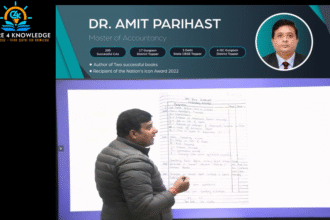SEBI’s Regulatory Concerns
The distribution of 21 million ESOPs to Sharma sparked complaints from SEBI in August 2024, claiming that it went outside regulations governing share-based employee incentives. Major shareholders who have the power to make decisions for a firm are not permitted to own ESOPs under Indian legislation.
Prior to Paytm’s public listing in 2021, Vijay Shekhar Sharma owned 14.7% of the company. He transferred 30.97 million shares to Axis Trustee Services, which represents the Sharma Family Trust, in order to lower his ownership to 9.1% and be eligible for ESOP incentives.
Sharma and other board members had previously received notifications from SEBI for allegedly falsifying information during Paytm’s November 2021 IPO.
The filing stated that this would lead to a one-time, non-cash acceleration of ESOP expenses of Rs 492 crores in the fourth quarter of the fiscal year 2025 and a corresponding reduction in ESOP expenses in subsequent years. According to accounting regulations, the ESOP expenses are notional value that is documented in the books.
Additionally, Paytm stated that its Q4 FY2025 financial statements will include information on the ESOP cost schedule.
In response to SEBI’s concerns, Paytm modified its ESOP scheme in a number of ways in March 2025. These modifications include tying ESOP to the most recent cycle of appraisals and yearly performance evaluations. Paytm has given eligible employees options at least twice in the last six months and increased the size of its ESOP pool in recent months.
Paytm’s Financial Performance
One 97 Communications, the parent company of Paytm, recorded a net loss of Rs 208 crore for the third quarter of FY2024–25 (October–December), down from Rs 220 crore for the same period the year before. However, from Rs 2,850 crore in Q3 FY2024 to Rs 1,828 crore, the company’s sales fell by 36%.
A one-time contribution of Rs 1,345 crore from the sale of its movie ticketing business, on the other hand, was the main driver of Paytm’s net profit of Rs 930 crore in Q2 FY2024-25. The company’s quarterly loss, excluding this sum, was Rs 415 crore.















